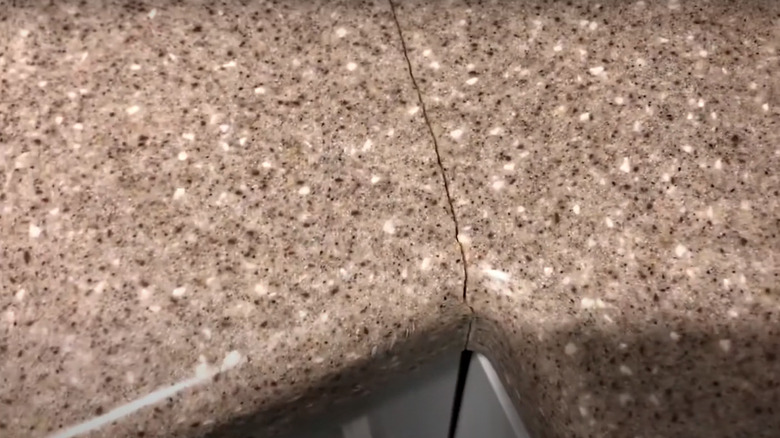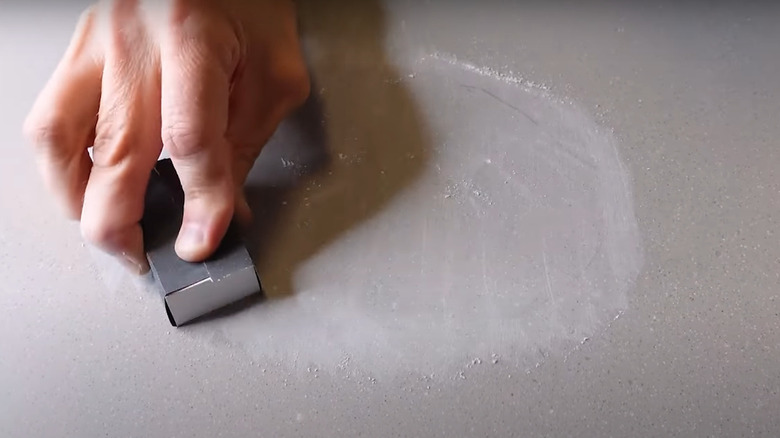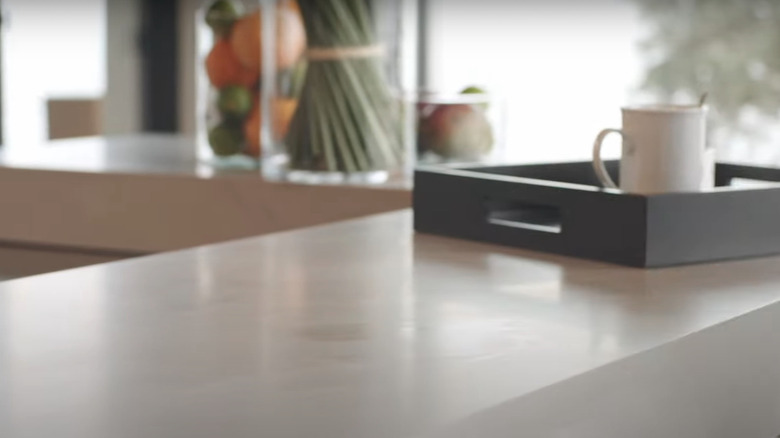Should You Try Fixing Cracks In Solid Surface Countertops Or Leave It To The Pros?
If you have beautiful solid surface countertops in your bathroom or kitchen, it can make your heart sink to notice unsightly cracks in them. Cracks can detract from the appearance of your countertops and can also be dangerous — they're hard to clean and can harbor bacteria. Although it seems like repairing cracks in solid surface countertops by brands such as Corian, Avonite, and Staron is a professional job, you can take on the task yourself, especially if the crack is minor.
If the damage is more extensive, consider hiring a professional rather than taking the DIY approach. The larger the crack is, the less likely it will be that you can handle the project yourself. If not done right, you may even need to replace the countertop entirely. Failure to perform the repair adequately may also lead to discoloration or an uneven surface.
If you want to try to fill a minor crack yourself, you'll be happy to learn that it's a relatively simple process that only requires a few materials. With the help of cyanoacrylate glue (super glue) and epoxy filler, you can fill your cracks quickly and ensure that your countertops keep looking their best. The method you use to fix a solid surface countertop will depend on the size of the crack. You can use super glue for hairline cracks but you may want to opt for epoxy filler to fill a wider crack.
How to fix a solid surface countertop crack
If you've decided to seal a hairline crack on your solid surface countertop instead of hiring a professional, start by chilling the area with an ice pack. Leave the ice pack on the crack for about 45 minutes before cleaning the edges of the area with a toothbrush. Add peroxide and rubbing alcohol to the toothbrush and scrub a bit to ensure the area is clean. You'll then need to switch from cold to hot. Heat the crack with a hair dryer to close it up. Finally, fill the remaining crack with cyanoacrylate glue and let it sit for a full day. At the end of the process, grab some sandpaper and sand the area to smooth it out.
To seal a wider crack, start by cleaning your Corian or solid surface countertops with soap and water. Next, take epoxy filler and fill the crack with the help of a putty knife. Along with the epoxy filler, consider adding some shavings or paint from the original countertop to help the filler match the look of the countertop. After applying, wait 24 hours to give the epoxy filler time to harden, then use a damp cloth to wipe away any excess epoxy. Once you're done, use sandpaper to smooth out the area and make it even. Finally, let it dry to complete the job.
Understanding fissures vs cracks
When fixing cracks in a solid surface countertop, it's important to realize that fissures and cracks aren't the same. Fissures look similar to hairline cracks but are simply a natural separation of materials within the countertop stone. These aren't a cause for concern and usually don't require any repairs. Unlike cracks, these will likely be smooth to the touch, so you can tell right away whether they're natural.
Cracks, on the other hand, are worth paying attention to and are visible breaks in the countertop material. Many types of countertops have issues with cracking. You can tell that a crack is unnatural because, unlike a fissure, it will feel uneven and unlike the rest of the countertop material. You'll need to take steps to fix cracks as soon as you notice them to prevent the growth of dangerous bacteria. Hiring a professional or using either cyanoacrylate glue or epoxy filler to fill the crack yourself will be well worth it.



